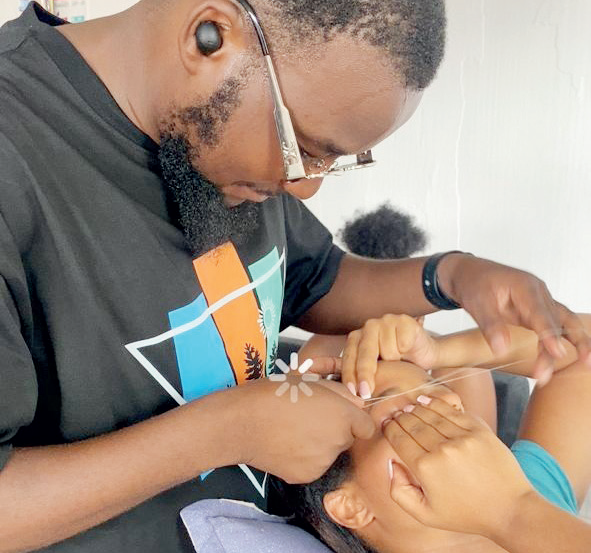Designing a new legacy in local fashion
Ten years ago, the idea of fashion as an industry in Malawi seemed a far-fetched fantasy, something that belonged more to the pages of international magazines than to the streets of our local cities.
For most people, the thought of pursuing a career in fashion felt out of reach almost as if it belonged to a different world and happened to a certain kind of people. Fashion as a serious career was unusual, almost laughable to some.

However, over the years, the narrative has shifted and thanks to budding fashion designers who managed to raise the bar high for the local fashion industry that the cities of Lilongwe, Blantyre and Mzuzu, yearly bud with fashion events.
One of the designers who helped rewrite the country’s fashion story is Lilly Alfonso, who managed to break through national barriers and stitched her name into the international narrative and showcased her brand onto international runways and red carpets.
“From a young age, I was passionate about fashion, however, growing up I realised there was no knowledge or information on how one can turn the passion and creativity into business. I had to look for a way and, well, it worked for me and I was able to showcase my work at international fashion shows,” she said.
Alfonso not only brought attention and recognition to her work but was able to put Malawi on the Map as she continued to be featured in various fashion shows, including being featured on BBC in 2013 for her work.
Her work opened doors and inspired a generation of aspiring designers. She paved a path showing it could be done, and done well.
But as the old saying goes: “If you want to go fast, go alone. If you want to go far, go together”, true to this spirit, her journey has now taken a more collective route.
Alfonso recalled: “In 2014, when an opportunity to relocate abroad came, I had an epiphany and needed to make a decision to either leave and give up on the young designers who were now looking up to me or stay and figure out a way to pave a clear path for them so that they don’t go through what I went through.
“I decided to stay and that was when the idea of the 100-year plan came to life,” she said.
According to Alfonso, the 100-year plan is aimed at creating a long-term sustainable vision for the local fashion industry. One that nurtures talent in the fashion industry, promotes collaboration and equips designers with skills and resources to thrive locally and compete globally.
Currently, through a partnership between the British Council and Lilly Alfonso’s 100-year Plan, the creative DNA initiative, which aims at promoting and supporting early-stage fashion designers, has taken on board more than 90 designers, providing the knowledge and skills for fashion entrepreneurship.
The initiative, which is being implemented to the tune of K48 million from the British Council, seeks to empower the emerging fashion entrepreneurs from across the country. It offers mentorship, training and market access building both creative and business acumen.
Alfonso, who is leading the programme, says the project is a milestone as far as her long-term dream to see more Malawian designers get the right knowledge and skills to thrive is concerned, adding that she previously struggled to reach more designers due to finances.
“The initiative has allowed us to bring more fashion designers on board now that we have proper support, which has not been easy. They are gaining skills on how they can build their own brands, manage their finances and how they can thrive as designers,” she said.
One of the participants, a Lilongwe-based fashion designer Memory Ngwira has described the initiative as life-changing for her career, saying that many local designers struggle to get knowledge and information on how to grow their brands.
“The few sessions that I have attended have helped me begin to truly identify myself as a fashion designer. I am now thinking bigger and outside the box. I am eager to learn more about how to properly brand and market my products,” she said.
Ngwira said she is excited to showcase Malawi to the world through her brand and encouraged other emerging designers to apply in the future stressing that the impact of the initiative is already shaping her business outlook.
Another participant, Terrence Tobani Ngulube, a Blantyre fashion designer said being part of the creative DNA initiative has been eye-opening and so far a hub of knowledge for fashion designers by industry leaders.
“We have had a lot of industry leaders give talks and it has been impactful. We have unpacked issues to do with packaging a creative business which is one of the things that I believe will help me position myself and my work in platforms that will help improve my craft and the business side of it,” he said.
Ngulube, who is the founder of Terry Toban, a clothing brand, said initiatives like these are extremely important for the local fashion industry and the creative minds in it, so that they are able to compete globally in the fashion world.
“The fashion industry is a very big and quickly booming industry not only in Malawi but around the world. We have seen a rise in creativity and creatives sharing their work out there. And these initiatives bridge gaps that are there in terms of collaboration and support with the creative industry,” he said.
He added that the initiative has already presented opportunities for designers as they were able to showcase their work at the Zomba City Festival annual event which happened from May 2 to 4.
With support through the programme two fashion shows events have been scheduled for Lilongwe and Mzuzu, organised by some of the participants who will use the platforms to showcase their works.
Participants have been drilled on design thinking and problem solving, branding and packaging and creative identity among others. While some attend the sessions physically, others do the same via online.





